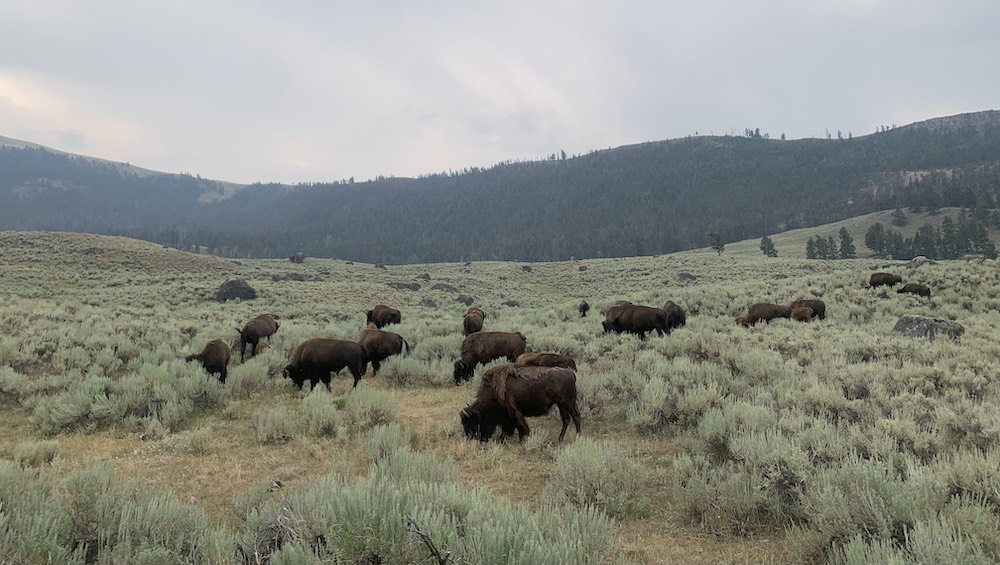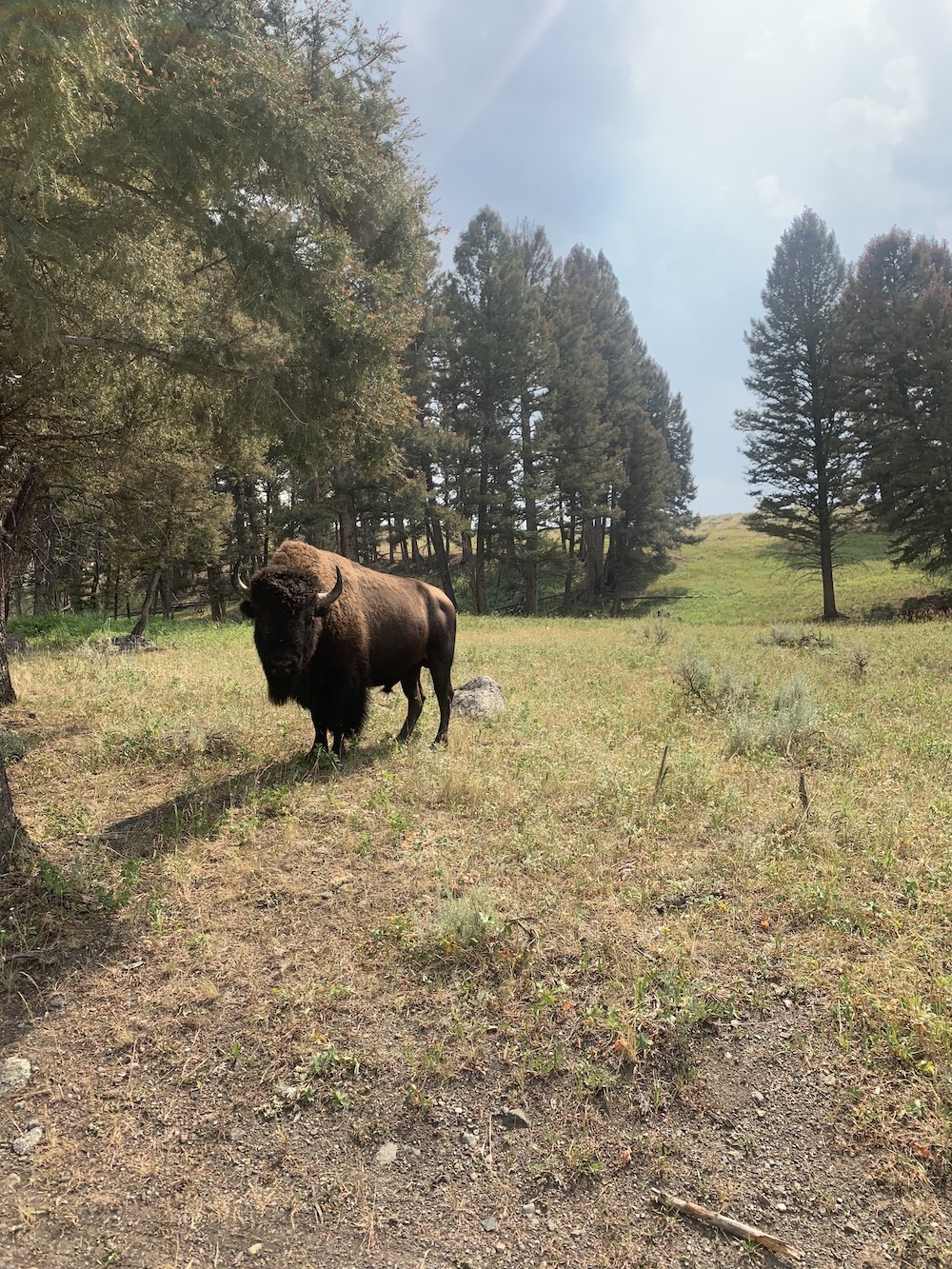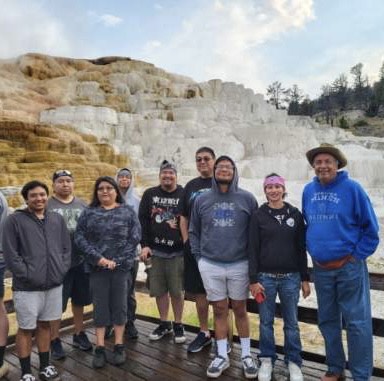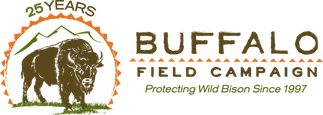Interning with the BFC
Like so many of us in the United States, growing up in a city suburb, I never felt like I had the opportunity to experience life as it was meant to be experienced. Despite always feeling the connection I had with the world around me, I felt quite alone in these thoughts, growing up in a culture where competition, materialism, and consumerism are rampant. The majority of my experiences being outside in ‘nature’ as a child were the bike rides I would take to a small section of woods near my childhood home; my suburb’s view of spending time in nature were landscaped lawns and parks. I have always cared deeply about my community, humankind, and the natural world and other species we share this Earth with, but have felt solitary in these perspectives.
I chose to study Ecology, Evolution, and Natural Resources in university, determined to make a difference. What I learned from most was from the failings of Western scientific thought and the culture around it. There had to be a different way to learn about our planet than to do what are often horrific scientific experiments, that even when the results turned out to be useful, could not persuade politicians or the general public in the United States to make significant changes in our way of life. In fact, over 50% of Americans still do not view climate change as a major threat, and more education does not change this, but instead only leads to greater polarization (Tyson et al., 2023, Kahan et al., 2012).

Buffalo herd grazing in Lamar Valley of Yellowstone National Park
I came to realize just how much we could learn from cultures that already have achieved a sustainable way of life, who for thousands of years, have known how to live within our connection with the ecosystem: Indigenous peoples. Their understanding of the interconnection between humanity and nature has allowed these communities to thrive in the absence of outside influence; and in the countries they exist within, to be able to positively influence people and governmental decisions around them. About eighty percent of the world’s current biodiversity is held within Indigenous territories (Garnett et al., 2018). Clearly, having a societal respect and appreciation for the planet that sustains us, and at a cultural level, understanding the natural world in terms of our place within it instead of something separate, is essential towards achieving a sustainable future.

Male bull buffalo in Yellowstone National Park
After learning about the buffalo slaughter and the historical legacy of the way buffalo management has affected Native peoples, I knew the Buffalo Field Campaign was the organization for me. I was able to intern in-person, and for the first time in my life, I didn’t feel alone in my perspectives about the connection humankind has with our planet. Native and non-Native alike, the people at the BFC are passionate and hard-working, and determined to make change both for the buffalo and other wildlife, and for Americans as a whole; to create a community where people are valued and respected and feel part of a family.
The Buffalo Field Campaign works to honor the sacred connection Native peoples have with the buffalo, and supports a host of organizations and people to come to the area and experience the presence of buffalo. During my time at the BFC, I had the opportunity to meet members of the Nez Perce tribe, who were part of a wellness group for those that have struggled with addiction, to revitalize their relationship with the buffalo, and their ancestral lands of Yellowstone National Park. This group has been doing an annual field trip to the BFC for the past three years. I learned, first-hand, from the perspectives of these people, and their commitment to the values I’ve always believed in but didn’t know how to find out more about.
 Me (far left) with members of the Nez Perce
Me (far left) with members of the Nez Perce
“Being in recovery, it’s like you want to replace those endorphins and those things you used to look for when you’re getting high or drinking, and then coming out here [to Yellowstone National Park] and replace those with something that’s positive, that’s healing, not only for myself, but also for the people that are in the community.” ~ Delbert Gordon McConville, Nez Perce
For many members of the Nez Perce wellness group that came to the BFC, the trip was a welcome reprieve, to help them better connect with nature and their ancestral lands and traditions, and remind themselves how spending time in nature can be rejuvenating. For me, I learned a lot from the Nez Perce and the people working with the BFC. I felt able to connect with the land and a community, all of nature and everything we experience, and be able to feel part of a whole.
My experience at the Buffalo Field Campaign made me realize that for those of us that seek community, and a different way of life, a more integrated manner of living within our place in nature– we can find it if we seek it out and make changes in our own lives to be more at one with our planet. We are not alone; we can be part of the people who fight everyday to create a better future for us, the buffalo, and every other part of this interconnected world we share.
~ Ashton Nagasuru, Buffalo Field Campaign Intern
